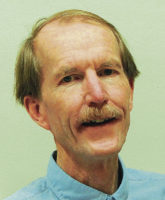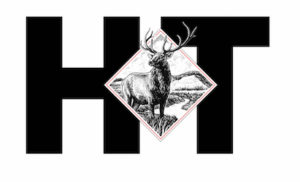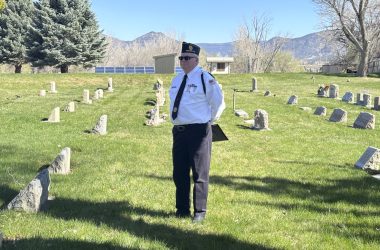
Science is a process to figure out how the world works—world in the broadest sense, from the forces that hold atoms together to why humans behave as they do to what is the structure and the evolution of the universe. It is not the only way of knowing. Science cannot answer questions such as “what is the purpose of life?” or “why are we here?” (although science can contribute to those discussions). But science is the best tool we have to answer questions that we can measure. What is the source of energy in stars? How do cells divide to produce new cells? Why is the sky blue? Science proposes possible answers to those questions, makes predictions based on those hypotheses and tests the predictions by experiment and observation. Scientific knowledge rests on real, measurable evidence.
In its realm, science is the most reliable tool we have to find the truth. And its realm is vast. We can cast an enormous net with properly formulated questions.
These days science is under attack. In this era of “alternative truths,” science has been cast as just another special interest. Climate scientists, according to some, are just trying to get government funding to pad their retirement accounts. Stem cell researchers are just trying to maintain their research grants. The claim is scientists are just like everybody else in Washington, trying to leverage influence.
Certainly, scientists are human, and a few let egos and greed corrupt their work. But the process is remarkably robust, and it is self-correcting. No work in science is accepted by the general scientific community until it has been replicated. The experimental procedures must be tested by other scientists, and the methods by which the results are analyzed must be tested. No work in science is accepted until that work has been reviewed by other experts in the field and, ultimately, by the wider scientific community. No work in science is accepted until it has been published in a peer-reviewed journal. Work that does not pass this rigorous review process might make some splashy headlines (witness, e.g., the claims a few years back of “cold fusion,” with its promise of an unlimited source of cheap energy), but it disappears into the dustbin of rejected hypotheses if other scientists can’t verify the results.
Certainly, we are not at the end of our understanding, but science has accumulated an enormous body of knowledge about our world. Reports of remarkable new discoveries should be taken with some skepticism, as is the very heart of science, but the established library of research-based knowledge is the gold standard of human endeavor. That includes our understanding of the genetic code. It includes our understanding of the atomic nucleus. It includes our understanding of processes driving climate change. And much, much more. There’s a lot more to learn, but scientists have enormous confidence in their foundations.
One common misunderstanding, especially among politicians, is that science can be directed to solve particular problems. We’ll cure cancer by directing researchers to find a way. We’ll solve our energy problems by funding energy research. No doubt incentives help, but that’s not the way seminal discoveries are made. Science is driven by curiosity. It is driven by innate human impulse for exploration and the intrinsic joy of finding things out. Even though the results of scientific discovery can, and do, change the human condition, the incentives come from human curiosity about how the world works. Some examples:
When Albert Einstein labored over his general theory of relativity, he was trying to figure out how gravity works. Other scientists had discovered that Newton’s laws didn’t completely describe the effects of gravity in extreme conditions, nearby to enormous masses like the sun, for instance. Einstein got to wondering if there was a better theory of gravity. His search turned up all kinds of strange phenomena, like clocks slowing down in a strong gravitational field. The search was driven by simple curiosity, but today those discoveries contribute to extraordinary technologies, including the global positioning system. Airplane navigation, cell phones, the GPS in your car absolutely rely on the equations of general relativity for their operation.
One of my professors, Arthur Schawlow, along with his colleagues, developed the laser. They were trying to understand the quantum behavior of light and measure fine differences in the electron energy levels inside atoms. Abstract stuff, basic physics. They had no notion, at the time, of the now ubiquitous practical applications of their invention—scanners at grocery checkout, laser eye surgery, high accuracy surveying instruments, etc. Another of my professors, Felix Bloch, was interested to determine the magnetic moment of the neutron, inside atomic nuclei, and, thereby, understand its composition. He had no idea that his discoveries would become the NMR (nuclear magnetic resonance) detectors in precision chemistry laboratories (and on the Mars Rover) and the MRI machines that doctors rely on to find out what’s going on inside the human body.
The latest of world-changing breakthroughs is, arguably, CRISPR-Cas. It’s a protein regulatory system invented by bacteria many hundreds of millions of years ago to protect themselves against viruses. Jennifer Doudna, Emmanuelle Charpentier and their colleagues found CRISPR-Cas doing basic research, trying to figure out the biological chemistry of an unusual strain of bacteria. Before their investigations, they had no idea their research would enable us to cut and paste genes. CRISPR-Cas has become the essential tool in genetics research and, one day, may allow doctors to cure genetic disease by removing defective genes (segments of DNA) and replacing them with normal genes.
Schawlow (b. Canada), Bloch (b. Switzerland), Doudna (U.S.), Charpentier (France) and their thousands of colleagues around the world are motivated by the joy of discovery. Happily, there’s often a huge practical benefit. Economists estimate more than half of the growth in our economy since World War II has resulted from such discoveries and their technical spin-offs (Bromley, 2001). The average rate of return on research investment is about 30 percent (Macilwain, 2010). NASA research and development, to cite just one example, generates on average 1600 innovations per year, each of them on average generating $1 million in new revenues (NASA, 2013).
That’s a bit of science. That’s why scientists are marching this weekend. They are speaking truth to power, that science is not only intrinsically captivating but that it is an international collaboration essential to our prosperity and well-being. It provides the evidence on which to base sound policy. It generates wealth and improves the human condition. It helps us understand this strange and beautiful universe. The nation would do well to listen.
References: Allan Bromley. American Physical Society Commentary. 2001. (www.aps.org /publications/apsnews/200104/viewpoint.cfm)
Colin Macilwain. Science economics: what science is really worth. 2010. (www.nature.com/news/2010/ 100609/full/465682a.html)
NASA Socio-economic impacts report. 2013. (www.nasa.gov/sites/ default/files/files/SEINSI.pdf)



















